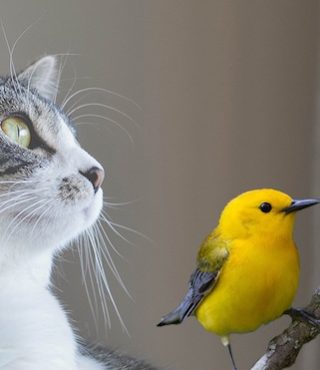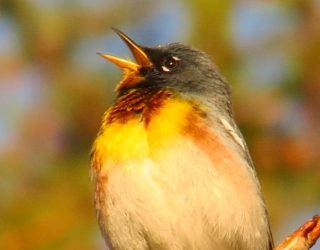About the Issue
The cat population is far from healthy in Canada. An estimated 261,000 cats in shelters did not find homes in 2016. Twice as many cats are dumped in shelters compared to dogs, and whereas 68 per cent of stray dogs are reunited with their owners, only 10 per cent of cats are returned home.
Cats are also frequently run over by vehicles. More than 1,300 dead cats were collected on the streets of Toronto in 2017!
Estimates indicate that many of those cats — as many as 30-40% — are allowed to roam unsupervised outdoors. Outdoor cats are exposed to a variety of threats, including diseases (e.g., FIV, FLV, cancer, heartworm), vehicle collisions, and fights with wildlife and other cats. Humane Canada (The Canadian Federation of Humane Societies) is one of many organizations that urges cat owners to keep their pets indoors unless the cat is supervised or in an enclosure.
While cats’ independent natures might lead some people to treat them like something between pet and wildlife, we owe them the same level of care we give dogs.
Letting cats roam unsupervised outdoors isn’t just bad for cats. It’s bad for birds too, as well as for people. Many of Canada’s birds are in trouble; some have declined by over 90%, and cats add to the list of risks that birds face. The official list of Bird Species at Risk increased from 47 to 86 between 2001 and 2014. Habitat destruction and climate change are taking their toll, but a lot of birds die due to other human actions and decisions. Environment Canada research estimates that, in addition to the impacts of climate change and habitat loss, 130 to 433 million birds a year die as a result of people. While it is extremely difficult to calculate the number of birds killed by pet and feral cats — especially when the number of feral cats is not well understood — cats are thought to cause 75% of those deaths.
For the cats’ sake, for the birds’ sake, and for our own sake, we need to change how we care for our beloved feline friends.








